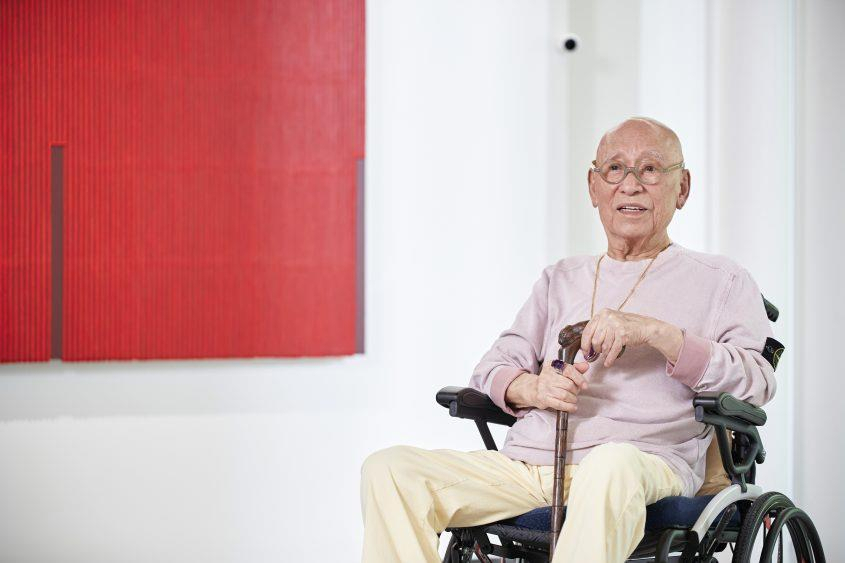 |
This file picture shows South Korea's dansaekhwa artist Park Seo-bo, who died on Saturday at the age of 92. (Yonhap) |
Park Seo-bo, a Korean contemporary art master, died on Saturday at the age of 92.
The artist died of cancer, according to a report by Yonhap News Agency on Saturday morning. In February, Park had revealed he had been diagnosed with lung cancer.
Born in 1931 in Yecheon County of North Gyeongsang Province, Park was the leader of the dansaekhwa movement, or “monochrome painting" movement, in Korea. The movement, considered internationally as unique to Korea and leading the local contemporary art scene, was initiated by a group of artists in the 1960s and 1970s who considered art as a method of meditative self discipline.
Park was best known for his "Ecriture" series, which began in 1967 with works that involved drawing lines repeatedly with a pencil on canvas. His techniques evolved with time, introducing variations in textures starting in the 1990s and incorporating colors into the paintings the 2000s.
The artist had stressed three notions in dansaekhwa: purposeless action in painting, a repetitive exercise in meditation and material properties evolved from the meditation.
In a press conference held in March at the Jeju Island about an upcoming museum dedicated to his work, Park had noted, "I hope my art helps heal people who have hard feelings deep inside their minds. That is one of the reasons I paint."
The museum, tentatively named the Park Seo-bo Museum, is set to open in summer 2024 on a site next to JW Marriot Jeju Resort and Spa.
In February, Park had revealed through his social media that he had recently been diagnosed with stage 3 lung cancer. During the March press conference, Park said he was not going through a treatment.
"I've decided to consider the cancer as a friend and live with it. ... I would not be able to paint if I go through a treatment to cure the disease,” he had said.
Park is survived by his wife, two sons and a daughter.
His funeral is held at the Seoul National University Hospital and visitors can attend from Saturday afternoon.







![[Today’s K-pop] Blackpink’s Jennie, Lisa invited to Coachella as solo acts](http://res.heraldm.com/phpwas/restmb_idxmake.php?idx=644&simg=/content/image/2024/11/21/20241121050099_0.jpg)